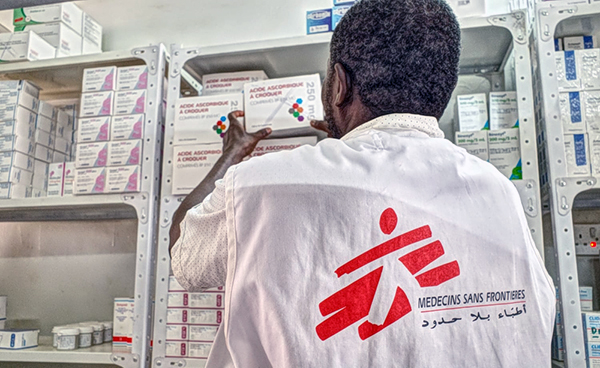
Doctors Without Borders Halts Operations in Zamzam Camp
moatinoon
Doctors Without Borders (MSF) has announced the suspension of its activities in the largest displacement camp in North Darfur due to escalating fighting in and around the camp, security deterioration, and risks to healthcare workers.
In a statement released today, the organization said, "The current escalation of attacks and fighting inside and around Zamzam displacement camp, located near El Fasher in North Darfur, Sudan, makes it impossible for Doctors Without Borders to continue providing medical assistance under such dangerous conditions. Despite widespread hunger and immense humanitarian needs, we have no choice but to suspend all our activities in the camp, including our field hospital."
MSF is one of the few organizations still operating in Zamzam camp, located 12 kilometers from El Fasher, the capital of North Darfur state in western Sudan. The camp shelters around half a million displaced people due to the ongoing 22-month-long civil war in Sudan.
The Rapid Support Forces (RSF) have intensified their offensive in recent weeks, launching attacks on Zamzam camp this month, escalating the ongoing violent clashes with the Joint Forces—a coalition of armed groups allied with the Sudanese Armed Forces. Meanwhile, RSF has been besieging El Fasher for the past ten months.
Yahia Khalilah, MSFs Head of Mission in Sudan, stated, "The extreme proximity to violence, significant challenges in delivering supplies, the inability to deploy experienced staff to provide adequate support, and the uncertainty regarding evacuation routes for our colleagues and civilians leave us with very limited options."
The organization reported that this month alone, its field hospital treated 139 patients with gunshot wounds and shrapnel injuries amid clashes between the military and the paramilitary RSF.
“MSF’s facility cannot provide trauma surgery for critically injured individuals,” the statement said.
Khalilah explained, "Eleven injured individuals, including five children, died while at the MSF hospital because we could not provide proper treatment or refer them to the Saudi Hospital—the only facility with surgical capacity in nearby El Fasher."
He emphasized that the situation has become increasingly dangerous, with many people, including patients requiring trauma surgery or emergency cesarean sections, trapped in Zamzam. He also noted that two MSF ambulances transporting patients from the camp to El Fasher were shot at in January and December.

